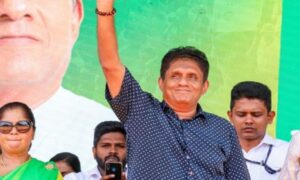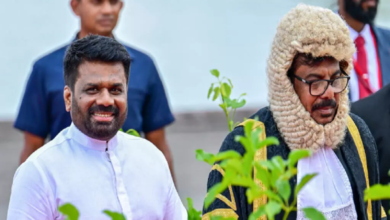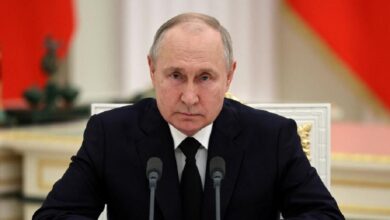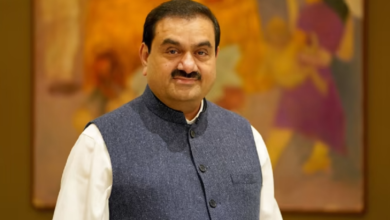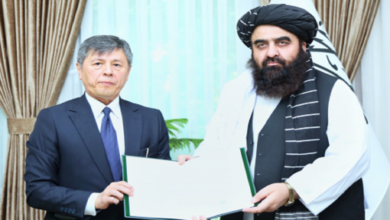Diplomat’s Report: Interests in which India is influencing Sri Lankan elections
India has always had an interest in Sri Lankan politics. The island nation, which has a strategic position in the Indian Ocean region, will hold re-election on September 21. Once again, their interest is in evidence there.
One of the main reasons for India’s interest in elections there is that they are islands very close to India. As there is a Tamil population in Sri Lanka, India also has a large population. These communities are not only linguistically or culturally similar. At the same time they have kinship ties. Therefore, the politics of any one side of the Pak channel affects the development of the other side.
In addition, Sri Lanka is very close to South India. Some of India’s important security and scientific research institutes are located in the south. These include nuclear power plants, space research centers and naval bases. So India’s primary concern is that no foreign power can influence Sri Lanka.
And for this reason, it is said that India is supporting Sajith Premadasa in the presidential election. Premadasa’s party is not only overwhelmingly pro-Indian. At the same time they are committed to the implementation of the 13th Amendment of the Constitution.
Journalist Rathindra Kurubita wrote a report on online media The Diplomat on Tuesday.
In that report, he also wrote that India has been seeing China as an external power for the past decade and a half. India is most worried about them. For this reason, India has been encouraged to support Sri Lankan politicians. India supports those who criticize or oppose China’s growing influence.
It is common knowledge in Colombo political circles that India supported former Sri Lankan army chief General (retired) Sarat Fonseka and Maithripala Sirisena of the Sri Lanka Freedom Party (SLFP) in the 2010 and 2015 presidential elections. At that time India chose to support these two. Because they were running against Mahinda Rajapaksa who worked closely with China for a decade.
Therefore, it is safe to say that India will support the candidates who are more anti-China among the frontrunners in this election.
Four main candidates are competing in the September 21 presidential election. They are National People’s Power (NPP)’s Anura Kumara Dishanayake, independent presidential candidate Ranil Wickremesinghe, Samagi John Balewegya (SJB) party opposition leader Sajith Premadasa and Sri Lanka Podujana Peramuna (SLPP) Namal Rajapaksa. Among them, Dishanayake and Premadasa are the frontrunners.
When the election results are announced on September 22, Sri Lanka’s ninth president could be one of them. Among them, Dishanayake is preferred by China. His NPP party is founded on the center-left political line. With them is the Janata Vimukti Peramuna (JVP). They are the main driving force of NPP.
Its base is a pro-Chinese section of the Sri Lankan Communist Party of the 1960s. Dishanayake visited India earlier this year. He got a lot of publicity about it. However, neither he nor his party has changed its anti-India stance. Although the NPP is not an anti-Indian party, it strongly opposes the sale of national assets to foreign companies. For this reason, their popularity is increasing.
The NPP has come out against India’s Adani Group taking control of key sectors like Sri Lanka’s ports, renewable energy and airports. Adani has a close relationship with Indian Prime Minister Narendra Modi.
The government has entered into an agreement with the Adani group against the national interest. Dishanaike threatened to cancel the disputed power or energy contract with Adani a few days ago by raising such allegations. Appearing on a TV talk show, he said that Sri Lanka has agreed to buy every unit of renewable energy produced by Adani from the wind farm located in Mannar. However, there is an agreement to buy it at twice the market price.
Anura told Dishanaye that she supports energy integration in South Asia. But he opposes those deals – which would weaken Sri Lanka’s economy and business competitiveness. He also promised to remove Indian fishermen from Sri Lankan waters.
On the other hand Premadasa and his associates were very loyal to India. His SJB is a wing of the right-wing United National Party (UNP). They are highly skeptical of China. In the early 1950s, the UNP was opposed to the establishment of diplomatic relations with China. During the Sino-Indian border war in the 1960s, they urged Sri Lanka to declare China an aggressor against India.
Still skeptical of China is the current generation of SJP leadership. SJP also criticized China’s debt trap diplomacy. Premadasa is the only candidate who has agreed to fully implement the 13th Amendment of the Constitution. India has been continuously demanding Sri Lanka to implement this amendment.
The Ilankai Tamil Arasu Kadchi (ITAK) party also has support for Premadasa. ITAK is a political party with close ties to India. There is speculation that India’s National Security Advisor Ajit Doval has influence over Tamil parties to support Premadasa. He visited Sri Lanka a few weeks ago. During this time MoU was signed with member countries for an initiative to establish Colombo Security Conclave (CSC) and CSC Secretariat.
After losing its ally in Bangladesh, the number of India’s friends in South Asia has drastically decreased. In response, India has been working to repair and strengthen relations with the Maldives and Sri Lanka in recent years. It is important for India to ensure a friendly administration in Sri Lanka.
The mindset of countering China’s influence in Sri Lanka is driven by India’s involvement in the upcoming presidential election. On the one hand, Premadasa took a pro-Indian stance. On the other hand, Dishanayake has taken a more pro-China stance. The direction of Sri Lanka’s foreign policy depends on this election. So India is supporting Premadasa for geopolitical reasons.

